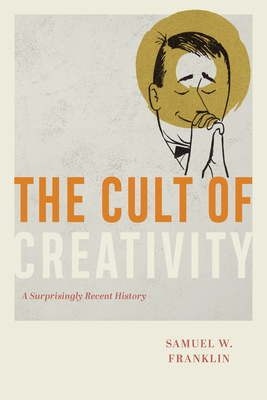The Cult of Creativity: A Surprisingly Recent History

The Cult of Creativity: A Surprisingly Recent History
A history of how, in the mid-twentieth century, we came to believe in the concept of creativity. Creativity is one of American society's signature values. Schools claim to foster it, businesses say they thrive on it, and countless cities say it's what makes them unique. But the idea that there is such a thing as "creativity"--and that it can be cultivated--is surprisingly recent, entering our everyday speech in the 1950s. As Samuel W. Franklin reveals, postwar Americans created creativity, through campaigns to define and harness the power of the individual to meet the demands of American capitalism and life under the Cold War. Creativity was championed by a cluster of professionals--psychologists, engineers, and advertising people--as a cure for the conformity and alienation they feared was stifling American ingenuity. It was touted as a force of individualism and the human spirit, a new middle-class aspiration that suited the needs of corporate America and the spirit of anticommunism. Amid increasingly rigid systems, creativity took on an air of romance; it was a more democratic quality than genius, but more rarified than mere intelligence. The term eluded clear definition, allowing all sorts of people and institutions to claim it as a solution to their problems, from corporate dullness to urban decline. Today, when creativity is constantly sought after, quantified, and maximized, Franklin's eye-opening history of the concept helps us to see what it really is, and whom it really serves.
PRP: 180.00 Lei
Acesta este Prețul Recomandat de Producător. Prețul de vânzare al produsului este afișat mai jos.
162.00Lei
162.00Lei
180.00 LeiLivrare in 2-4 saptamani
Descrierea produsului
A history of how, in the mid-twentieth century, we came to believe in the concept of creativity. Creativity is one of American society's signature values. Schools claim to foster it, businesses say they thrive on it, and countless cities say it's what makes them unique. But the idea that there is such a thing as "creativity"--and that it can be cultivated--is surprisingly recent, entering our everyday speech in the 1950s. As Samuel W. Franklin reveals, postwar Americans created creativity, through campaigns to define and harness the power of the individual to meet the demands of American capitalism and life under the Cold War. Creativity was championed by a cluster of professionals--psychologists, engineers, and advertising people--as a cure for the conformity and alienation they feared was stifling American ingenuity. It was touted as a force of individualism and the human spirit, a new middle-class aspiration that suited the needs of corporate America and the spirit of anticommunism. Amid increasingly rigid systems, creativity took on an air of romance; it was a more democratic quality than genius, but more rarified than mere intelligence. The term eluded clear definition, allowing all sorts of people and institutions to claim it as a solution to their problems, from corporate dullness to urban decline. Today, when creativity is constantly sought after, quantified, and maximized, Franklin's eye-opening history of the concept helps us to see what it really is, and whom it really serves.
Detaliile produsului










